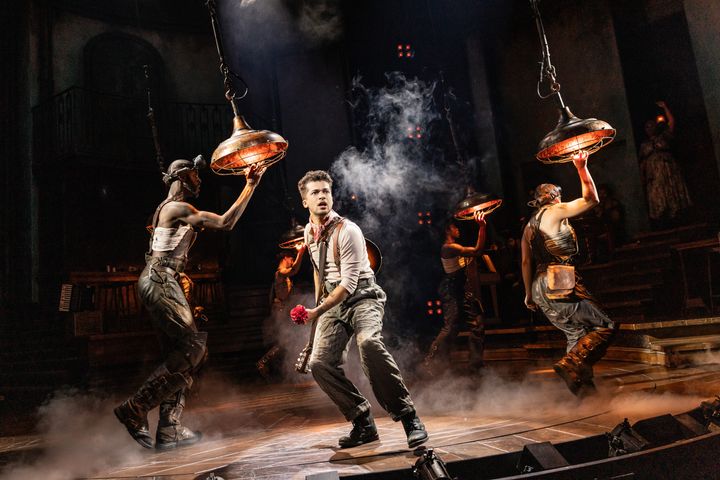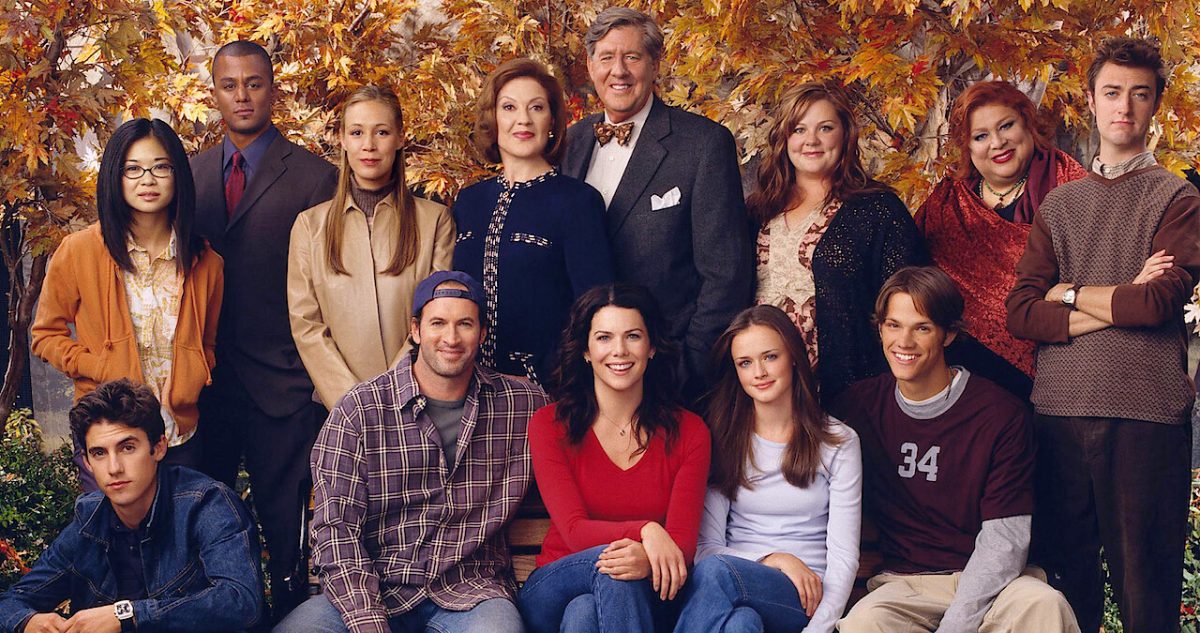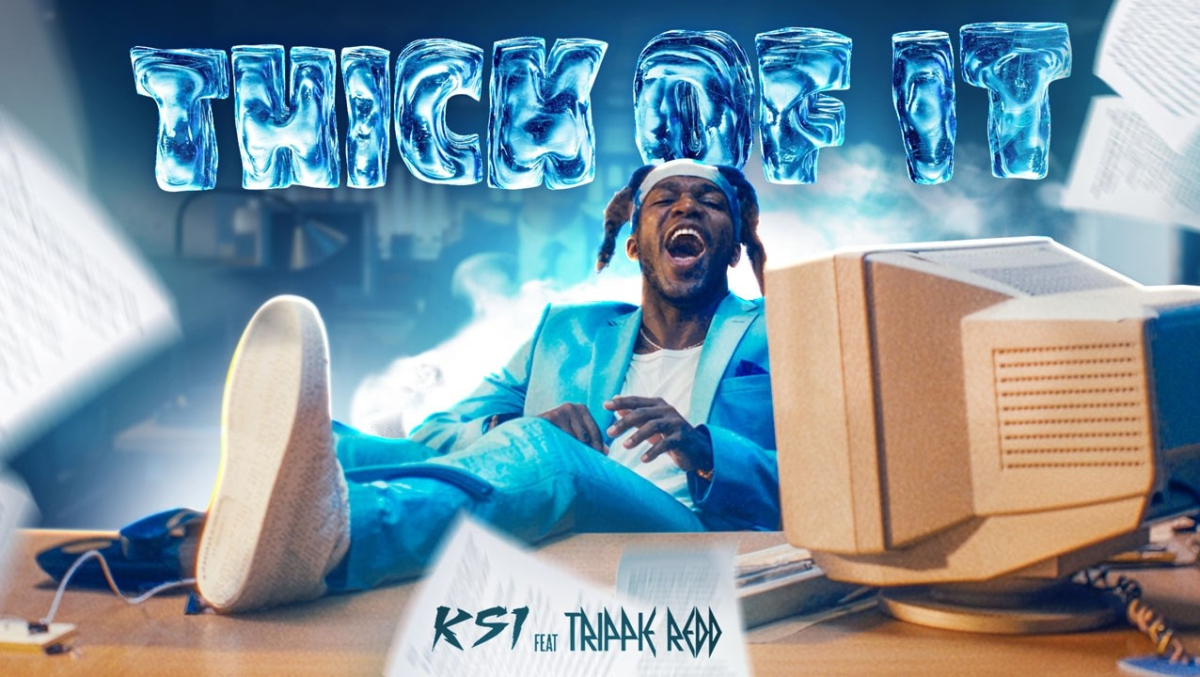Two Perspectives on Hadestown

When I heard that line in the final song of Hadestown on Broadway, it clung to me because it’s a sentiment that I believe to be the driving force behind all of theater. I was raised on musicals, and I truly believe that this concept is the essence of what it means to perform. There is something about that sense of repetition, the knowledge that a story is perpetual, that can enrapture an audience. There is no experience in this world quite akin to watching a show in which it’s so clear that the actors rip their very hearts out and put them on display eight times a week, beginning again every night, never tiring of the journeys their characters take. And begin again Hadestown does. This show excels because it knows exactly what it is: a retelling of a tragic story that’s been told for most of human memory.
Adapted from the Greek myth of Orpheus and Eurydice, Hadestown is celebrating its fifth year on Broadway. The winner of eight Tony awards in the 2019 season, including Best Musical, there is no doubt that Hadestown has earned its place as a modern Broadway classic. The YHS music department had the privilege of seeing this show on a field trip this January, and we happened to catch this show at a time when it was inhabited by a cast that was both star-studded and deeply talented, with talents such as Jordan Fisher and Betty Who. However, while it highlights such talent, the real appeal of this show is the story and the humanity that it conveys—it breathes life into an old myth by shining a light on the hope, not the hopeless. While it didn’t “turn out” for Orpheus and Eurydice, the show reminds us of the power of community and the importance of standing side by side with our fellow man. It can, to quote the musical yet again, “make you see how the world could be, in spite of the way that it is.”
Visually, there is no other word to describe Hadestown except magical. Some Broadway shows that I’ve seen, such as Wicked, pride themselves on being a spectacle. Hadestown, on the other hand, uses its impressive command of special effects in a very nuanced and almost subtle way in order to really cultivate the story. Classic Broadway set choices, such as turntables and fog machines, aid in allowing the imagination to run wild with the story instead of detracting from it, and in the culminating numbers of the show these effects are simply transforming.
Hadestown was originally conceived in 2010 by American musician Anaїs Mitchell as an independent folk opera concept album. As one may expect, the music has gone through many transformations since its primary composition, and is now two and a half hours long and sung through. Heavily influenced by blues and roots music, Hadestown brings sounds to Broadway that aren’t typical of the genre. Hadestown begins not with the opening of curtains or the swelling of an orchestral overture, but with the narrator walking on stage, asking “Aight? Aight!” and being answered by the growl of a soulful trombone baseline. While bands playing onstage is not necessarily uncommon for contemporary musicals, Hadestown goes even further than any of its contenders in this respect—it blurs the line between actor and musician entirely. Several actors become a part of the instrumental makeup of the show, and memorably, some of the instrumentalists have moments where they are center stage dancing along with the characters. It’s truly a refreshing take on the entire medium, especially being that music is the most essential aspect of musical theater.
Musical theater is a beautiful genre of storytelling because of how limitless it is. Suspension of disbelief is a core part of the art from the beginning, and so the creative and meta ways in which theater can communicate its message make it exceptionally unique. Between its timely political commentary, its cleverly modern takes on an old story, and resonant message about the depth of human connection, Hadestown truly shows us what performance art can be in our modern world. Once you’ve experienced this show for yourself, I’m sure you’ll never “look back.”
On only my second visit to Broadway, I found my go-to no-skip album: Hadestown. With a seductive blend of jazz, blues, and folk styles, I was hooked from the opening saxophone solo of “Road to Hell.” From romantic, heart-wrenching ballads to cold, pulsating chants, the musical thrives dynamically, keeping the audience on the edge of their seats and taking them on an emotional rollercoaster.
Each character offers a unique vocal personality—Hermes’s dramatic narration and perceptive mentoring; Eurydice’s hardened tone that softens as she falls in love and morphs into despair after a difficult turn of events; Orpheus’s dreaminess and awkward but pure moments as he pours his heart out in love; Hades’s deep, yet silky voice that’s full of greed and arrogance but still contains hints of vulnerability; Persephone’s outward gaiety that masks her tension with Hades; the gossipy quips of the Fates; and the fading of the workers’ personality as they fall into the control of Hades—each provides an added dimension to the songs.
This is not the only thing that sets Hadestown apart from mainstream albums. Hadestown contains themes common to mainstream pop albums: falling in love, heartbreak, and reconciliation. But rather than having a potpourri of not-exactly-related songs with similar themes about romance, Hadestown, as a Broadway musical, provides a cohesive storyline that explores many themes at a deeper level, weaving them together to create a multi-layered masterpiece.
Yes, Hadestown is a love story and tragedy—a modern retelling of the ancient myth of Orpheus and Eurydice. But it is so much more than that. It is a reminder of the cyclical nature of humanity. You may know the myth, but the actors inspire such a fervent devotion to Orpheus and Eurydice that it is easy to forget their predetermined fate and hard not to hope and believe that they will have a happy ending.
This idea of forgetting something we know to be true manifests itself in the political commentary that serves as an underlying theme in Hadestown. It’s hard to miss some of Anaïs Mitchell’s references to politics. “Gilded cage” sounds awfully similar to “Gilded Age,” and while “gilded cage” is its own term meaning a luxurious prison (an accurate description of Hadestown, Hades’s factory town), Hades’s virtual enslavement of the workers to bolster his underground factory’s industrial capacity evokes images of the powerful business magnates of the late 19th century. In modern times, the loss of the workers’ individuality and Hades’s suppression of their voices parallels Amazon’s inhumane treatment of its laborers. Mitchell could very well be commenting on the recurring issue of corporations oppressing labor in a capitalist world, from the Carnegie Steel Company to sweatshops to Amazon and Walmart and so many more in between.
An even more obvious example of Mitchell’s possible political commentary is the song “Why We Build the Wall,” which starts with the line “Why do we build the wall?” If you were not living under a rock in 2016, you may know what I’m getting at here. As the song progresses, it seems to become increasingly clear that Hades’s wall is a mirror image of Trump’s border wall. With lyrics like “We build the wall to keep us free,” “Because they want what we have got,” “The wall keeps out the enemy,” and “The enemy is poverty,” it is hard not to notice some parallels. The interesting thing is that Mitchell wrote the musical long before Trump began to croon about building a wall between the U.S. and Mexico. Perhaps Mitchell was using the wall as an analogy to the oppression and wealth inequality that has emerged from capitalism and coincidentally predicted the future.
Much of the plot itself is shaped by the idea of labor unionizing against corporate oppression. In Hadestown, Hades is the oppressive corporate boss, devising unfair contracts to trap the desperate workers and Eurydice under his domain. Orpheus is a unionizing force, bringing the workers together to realize their abuse and fight for better conditions through song, invoking parallels to “Solidarity Forever.” In a major plot point, Orpheus uses collective bargaining tactics to negotiate a contract with Hades that would potentially free Eurydice. However, as shown many times in history, corporate wins and Hades continues to exploit Eurydice. It seems this is a direct reference to the cyclic battle between labor and management in the capitalist world.
No matter how you look at Hadestown, as an entertaining love story or a political commentary (or both), Mitchell’s foresight about the cyclic nature of humanity is unmistakable. From the concept to the plot to the themes to the replayability of the album, Hadestown is the epitome of cyclicity. “And we’re gonna sing it again and again…”
Your donation will support the student journalists of Yorktown High School. Your contribution will allow us to purchase equipment and cover our annual website hosting costs.







